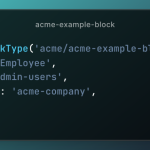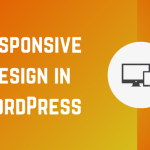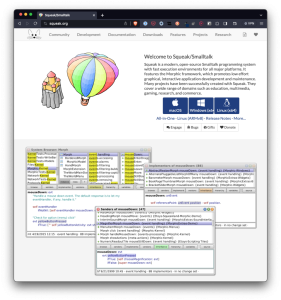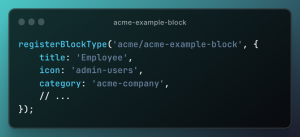The statement “WordPress is a foundation, not a framework” can be interpreted in a few ways, primarily focusing on its structure and purpose compared to typical software frameworks.
Table of Contents
WordPress as a Foundation
1. Core Purpose and Flexibility: WordPress started as a blogging platform but has evolved into a robust content management system (CMS) that powers a significant portion of the web. It serves as a foundation for building websites of various types — from simple blogs to complex eCommerce sites and everything in between. This versatility makes WordPress more of a foundational platform upon which many types of web applications and websites can be built.
2. Extensibility: One of the strengths of WordPress is its extensible nature. With themes and plugins, users can add custom functionalities and change the look of their sites without altering the core code. This capability allows WordPress to serve as a base or “foundation” for limitless creativity and customization, accommodating a wide array of business needs and personal preferences.
WordPress as Compared to a Framework
1. Definition of a Framework: In software development, a framework is typically a structured set of tools and libraries designed to help developers build applications by providing a skeleton or blueprint. Frameworks impose a particular way of doing things and often come with a steep learning curve.
2. WordPress’ Approach: Unlike many frameworks that provide rigid guidelines and patterns, WordPress offers more freedom in terms of design and functionality. It does not enforce strict coding practices or architectures (like MVC in frameworks such as Laravel or Ruby on Rails). Instead, it provides a simple, plugin-based architecture which can be seen as less restrictive than traditional frameworks.
3. Community and Ecosystem: WordPress has a vast global community and a rich ecosystem of themes, plugins, and services. This community-driven approach contributes to its foundation-like role in the web ecosystem, providing tools, tutorials, forums, and third-party services that enhance its usability and functionality.
Conclusion
Describing WordPress as a “foundation” rather than a “framework” underscores its role as a base upon which anything can be built, customized, and extended. It highlights its user-friendly design that welcomes both novice users and expert developers to create and innovate freely. This perspective is essential for understanding why WordPress is so popular and widely adopted across different sectors and use cases.
WordPress stands out as a premier content management system (CMS) for several reasons, making it highly popular for a wide range of websites, from personal blogs to large corporate portals. Here are some key factors that contribute to its success:
1. User-Friendly Interface
WordPress is renowned for its straightforward and intuitive user interface. This ease of use makes it accessible to users of all skill levels, from beginners to experienced developers. Users can easily manage content, add new pages, and customize their sites without needing deep technical knowledge.
2. Extensibility Through Plugins and Themes
One of the most significant advantages of WordPress is its vast ecosystem of plugins and themes. There are thousands of plugins and themes available, both free and premium, that allow users to extend the functionality and change the appearance of their websites without writing any code. This makes it possible to add complex business features or achieve virtually any look with minimal effort.
3. Active Community and Support
WordPress benefits from a large, active community of users, developers, and enthusiasts who continuously contribute to its development, provide support, and create a multitude of resources such as plugins, themes, and tutorials. This community support means that users have extensive help available for any issues they encounter.
4. SEO-Friendly
WordPress is designed to be SEO-friendly out of the box. It generates title tags and meta descriptions for all your pages and posts, which helps search engines understand your content better. Additionally, many SEO plugins are available to further enhance optimization, helping sites rank higher in search engine results.
5. Responsive Design
With mobile traffic increasing, having a mobile-friendly website is crucial. Most WordPress themes are responsive, meaning they automatically adjust their layout to look great on any device. This responsiveness ensures that a WordPress site will be accessible and user-friendly, whether viewed on a desktop, tablet, or smartphone.
6. Robust Security
While no CMS can claim to be entirely secure, WordPress places a strong emphasis on security. The core software is regularly updated to address any vulnerabilities. Moreover, numerous security plugins are available to help protect sites from hacking attempts, malware, and other threats.
7. Scalability
WordPress sites can grow with your needs. From small blogs to large multi-site installations for enterprises, WordPress can handle significant amounts of traffic and complex website requirements, making it suitable for both small businesses and large corporations.
8. Open Source with Room for Customization
WordPress is open-source software, meaning it is free to use, modify, and distribute. This open nature encourages innovation and customization. Developers can modify the source code to create custom features tailored specifically to their needs or their clients’ requirements.
9. Multilingual and Localization Support
WordPress supports many languages and can be easily used to create multilingual websites. This is particularly beneficial for businesses targeting a global audience or regions with multiple official languages.
Overall, WordPress’s combination of flexibility, ease of use, robust community support, and extensive features makes it an excellent choice for many users worldwide. Whether you’re building a simple blog or a complex e-commerce platform, WordPress provides the tools necessary to do so effectively.

















